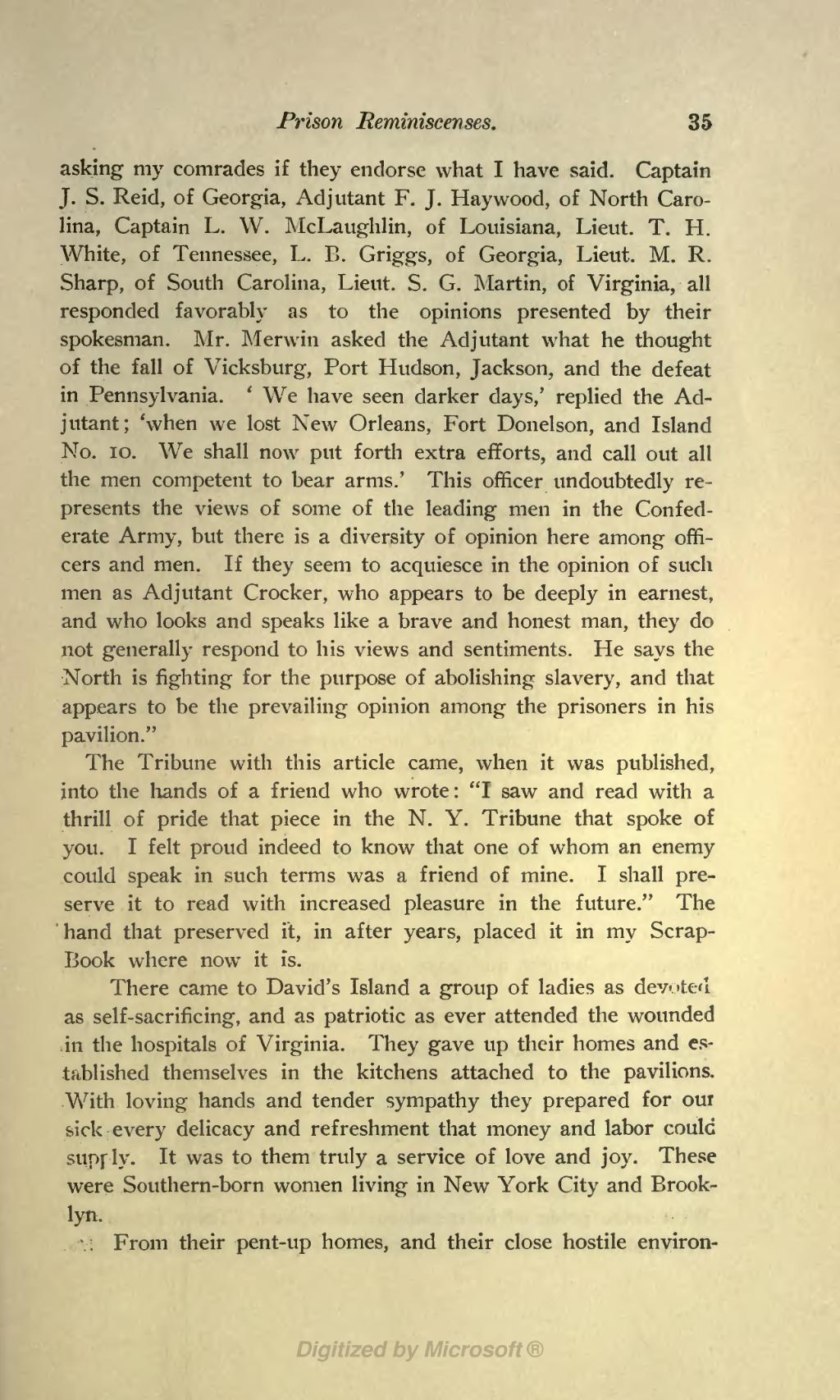Prison Reminiscenses. 35
asking my comrades if they endorse what I have said. Captain J. S. Reid, of Georgia, Adjutant F. J. Haywood, of North Caro- lina, Captain L. W. McLaughlin, of Louisiana, Lieut. T. H. White, of Tennessee, L. B. Griggs, of Georgia, Lieut. M. R. Sharp, of South Carolina, Lieut. S. G. Martin, of Virginia, all responded favorably as to the opinions presented by their spokesman. Mr. Merwin asked the Adjutant what he thought of the fall of Vicksburg, Port Hudson, Jackson, and the defeat in Pennsylvania. ' We have seen darker days,' replied the Ad- jutant; 'when we lost New Orleans, Fort Donelson, and Island No. 10. We shall now put forth extra efforts, and call out all the men competent to bear arms.' This officer undoubtedly re- presents the views of some of the leading men in the Confed- erate Army, but there is a diversity of opinion here among offi- cers and men. If they seem to acquiesce in the opinion of such men as Adjutant Crocker, who appears to be deeply in earnest, and who looks and speaks like a brave and honest man, they do not generally respond to his views and sentiments. He says the North is fighting for the purpose of abolishing slavery, and that appears to be the prevailing opinion among the prisoners in his pavilion."
The Tribune with this article came, when it was published, into the hands of a friend who wrote: "I saw and read with a thrill of pride that piece in the N. Y. Tribune that spoke of you. I felt proud indeed to know that one of whom an enemy could speak in such terms was a friend of mine. I shall pre- serve it to read with increased pleasure in the future." The 'hand that preserved it, in after years, placed it in my Scrap- Book where now it is.
There came to David's Island a group of ladies as devoted as self-sacrificing, and as patriotic as ever attended the wounded in the hospitals of Virginia. They gave up their homes and es- tablished themselves in the kitchens attached to the pavilions. .With loving hands and tender sympathy they prepared for our sick every delicacy and refreshment that money and labor could supply. It was to them truly a service of love and joy. These were Southern-born women living in New York City and Brook- lyn.
v: From their pent-up homes, and their close hostile environ-
